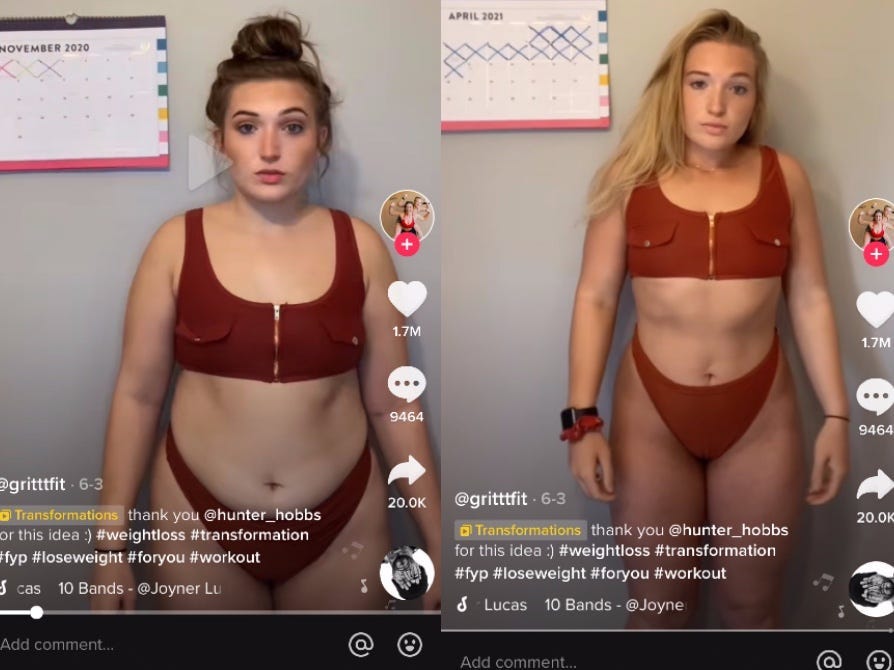
@gritttfit/TIkTok
- A TikTok personal trainer recently shared her 28 pound weight loss over six months in a time-lapse video.
- She told TODAY she had previously struggled with her weight and wanted to help others.
- Some evidence suggests social media weight loss content can worsen self-esteem and body image.
- Visit Insider's homepage for more stories.
Last November, TikToker Lucy Bergin started a diet and exercise program to lose weight. To document her results, she took a photo every day in the same outfit next to a calendar.
Six months later, Bergin has lost a total of 28 pounds. Her weight loss journey, shared in a recent time-lapse video posted to TikTok, has gone viral, viewed more than 11 million times on the app.
20-year-old Bergin told TODAY that she had previously struggled with her weight, and at 4 feet, 11 inches tall, she had a body mass index in the obesity range as a teenager.
She lost the weight by sticking to a calorie deficit, or eating less than she burned off in the form of exercise, which experts say is key to losing body fat.
Bergin, who is certified as a personal trainer, said she was inspired by other TikTok users to create the video, and hopes to help other people achieve similar results.
Research shows weight loss "transformation" images can do more harm than good
"Before and after" weight loss photos are a staple for social media influencers and diet program advertising, but some experts have cautioned against spending too much time viewing this kind of content.
Studies suggest these images don't help motivate people, and viewing them can worsen confidence and body image.
Social media photos can also be incredibly misleading, as influencers use specific poses, lighting, angles, and other techniques to create a slimmer or more muscular appearance.
There's evidence that this kind of content can lead to unrealistic expectations about how you should look, and may increase the risk of disordered eating or unhealthy exercise behaviors, too.
However, social media can also help foster a sense of community and promote positive self-image. Experts previously told Insider that it's important to be aware of how social media makes you feel, and to take a break or unfollow some content if needed.